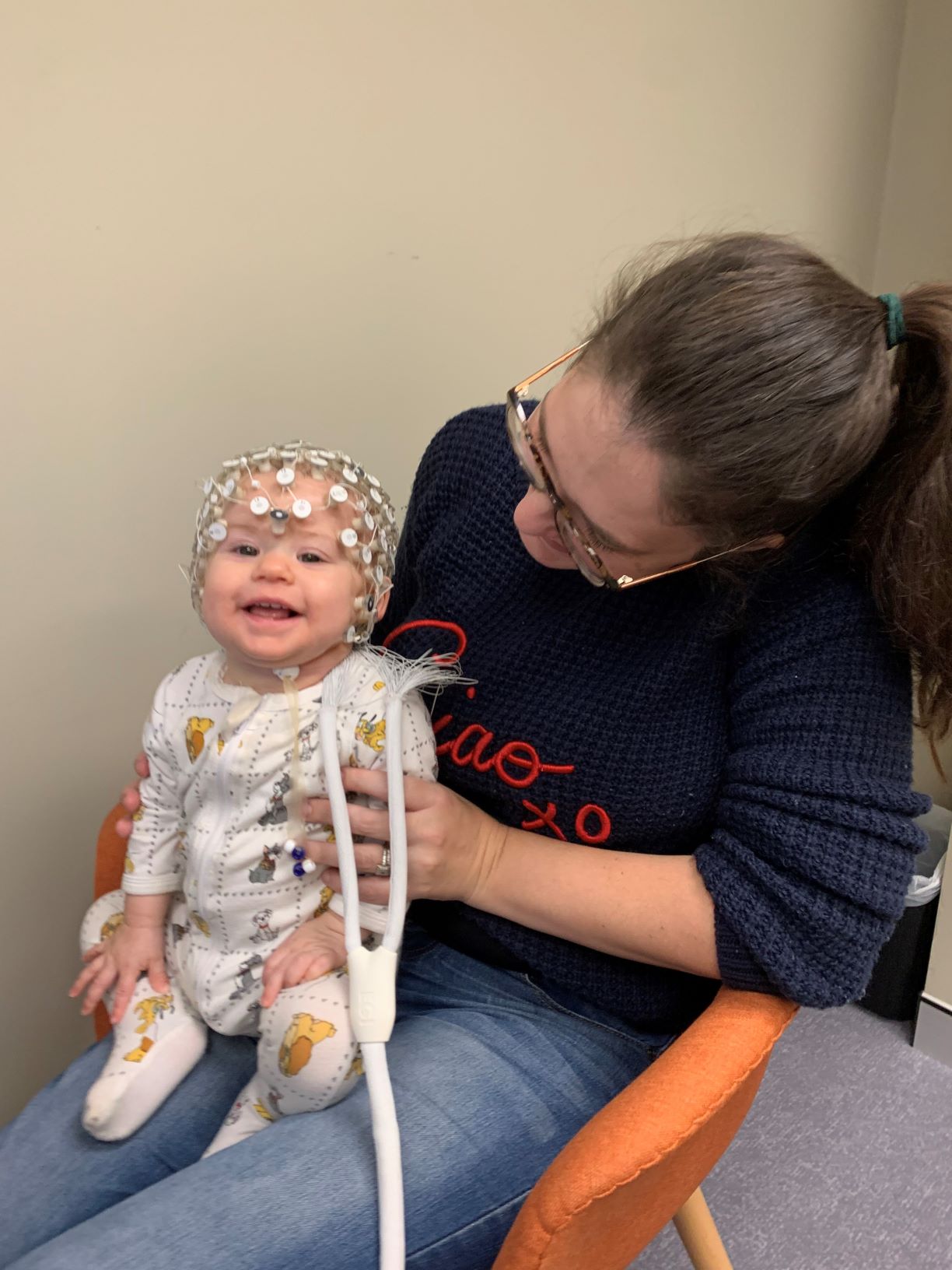Video technology is helping researchers learn more about the early communication style of infants with a family history of autism, ADHD or intellectual disability.
Research has shown children with a family history of autism are more likely to develop autism or other developmental disorders, with children who have a full sibling or biological parent with autism 20 per cent more likely to develop the condition.
Early intervention can play an important part in reducing disability that is associated with autism.
Interactions between parents and babies are among the most influential experiences in a child's life. This study is testing a world-first program that helps parents undertstand their baby's early social and communication abilities, empowering parents to interact with their baby in a way that supports their early development.
The CUB intervention program runs from the third antenatal trimester to when the baby is 8 months of age.
This research is important because it will help us to understand how we can best support parents of newborn children, and whether a program provided very early in development may deliver benefits to the family and child.
Recruitment is now closed.
Who is carrying out the study?
The study leaders are Professor Andrew Whitehouse, Director of CliniKids at The Kids Research Institute Australia, Perth and Dr Kristelle Hudry from La Trobe University.
For more information
Download the Participant Information Brochure
Download the CUBS Flyer
Phone: 6319 1012 0435 123 825
email: CUBS@telethonkids.org.au

